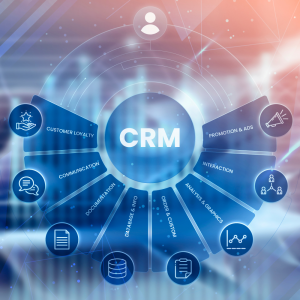Event marketing is a powerful tool for brands to engage with their target audience and promote their products and services. But with so many events happening around the world, it can be challenging to stand out and create a lasting impression. That’s why brands need to be innovative and creative in their event marketing strategies to capture the attention of their audience and grow their business.
Here are the top 10 innovative event marketing strategies that can help brands achieve their goals:
- Virtual Events
Virtual events have grown in prominence over the past few years, and this trend will likely continue. Virtual events enable brands to reach a larger audience and deliver a more immersive experience. Virtual events may consist of webinars, conferences, and product launches, among other things.
- Experiential Marketing
Creating an interactive experience for the audience to interact with a brand is an example of experiential marketing. This may consist of product demonstrations, interactive displays, and live performances. Experiential marketing can increase brand loyalty and leave a lasting impression on the audience.
- Social Media Integration
The use of social media is integral to event marketing. Brands can utilise social media to generate interest in their event, interact with the audience, and promote their products and services. Integration of social media may involve live streaming, real-time updates, and social media contests.
- Influencer Marketing
Influencer marketing entails forming strategic alliances with social media influencers to promote a brand and its products. Influencers can offer a distinct perspective on the brand and aid in expanding its audience reach.
- Personalized Experiences
Personalization involves adapting the event to the preferences and interests of the audience. This may involve personalizing the event’s content, activities, and giveaways for each attendee to create a unique experience.
- Gamification
Gamification is the addition of game-like elements to an event to increase participation and engagement. This may involve treasure hunts, trivia activities, and interactive challenges. Gamification can create a memorable and enjoyable experience for the audience, thereby increasing brand loyalty.
- Augmented Reality (AR)
To create an immersive experience, AR involves superimposing digital content on the actual world. Using augmented reality, companies can provide interactive product demonstrations, develop virtual exhibits, and offer augmented reality activities and challenges.
- Location-Based Marketing
Utilizing the audience’s location to provide pertinent and personalized content is an example of location-based marketing. Using location-based marketing, brands can provide attendees with event information, promotions, and exclusive offers based on their location.
- Interactive Installations
Audience-engaging interactive installations involve the creation of immersive and interactive exhibits. Interactive installations can be used by brands to exhibit their products and services, offer the audience a unique experience, and increase brand awareness.
- Sustainability
Creating an event that is environmentally favorable and consistent with the brand’s values constitutes sustainability. Sustainable practices, such as using eco-friendly materials, reducing waste, and promoting sustainable living, can be utilized by brands to have a positive effect on the environment and the target audience.
Event marketing is crucial for brands to engage their target audience and promote their products and services. There are countless opportunities for brands to create memorable and impactful events, ranging from virtual events to experiential marketing, social media integration to influencer marketing, personalized experiences to gamification, augmented reality to location-based marketing, interactive installations to sustainability.
More Stories
Oktopost launches Looker Studio integration to streamline marketing analytics for B2B teams
In the fast-paced world of B2B marketing, leveraging data for strategic decision-making is no longer optional it’s essential. Oktopost, a...
Listrak debuts first RCS marketing campaign in U.S.
The retail industry is entering a new era of communication, and Listrak, a leading cross-channel marketing platform, is at the...
Transmit joins forces with ViewLift to enhance streaming revenue
Transmit, a leader in revenue maximization for premium streamed content, and ViewLift, an innovative provider of end-to-end streaming and OTT...
Bitly Inc. expands app marketplace with new integrations
Bitly Inc., the world’s leading Connections Platform, has announced a significant expansion of its app marketplace by introducing new text-to-pay...
Getty Images brings premium content to TikTok advertisers
In a groundbreaking partnership, Getty Images, a global leader in visual content, has announced its integration with TikTok to revolutionize...
SurveyMonkey now lets users collect responses seamlessly on WhatsApp
SurveyMonkey, the world’s most popular platform for creating surveys and forms, has recently made a powerful addition to its social...

